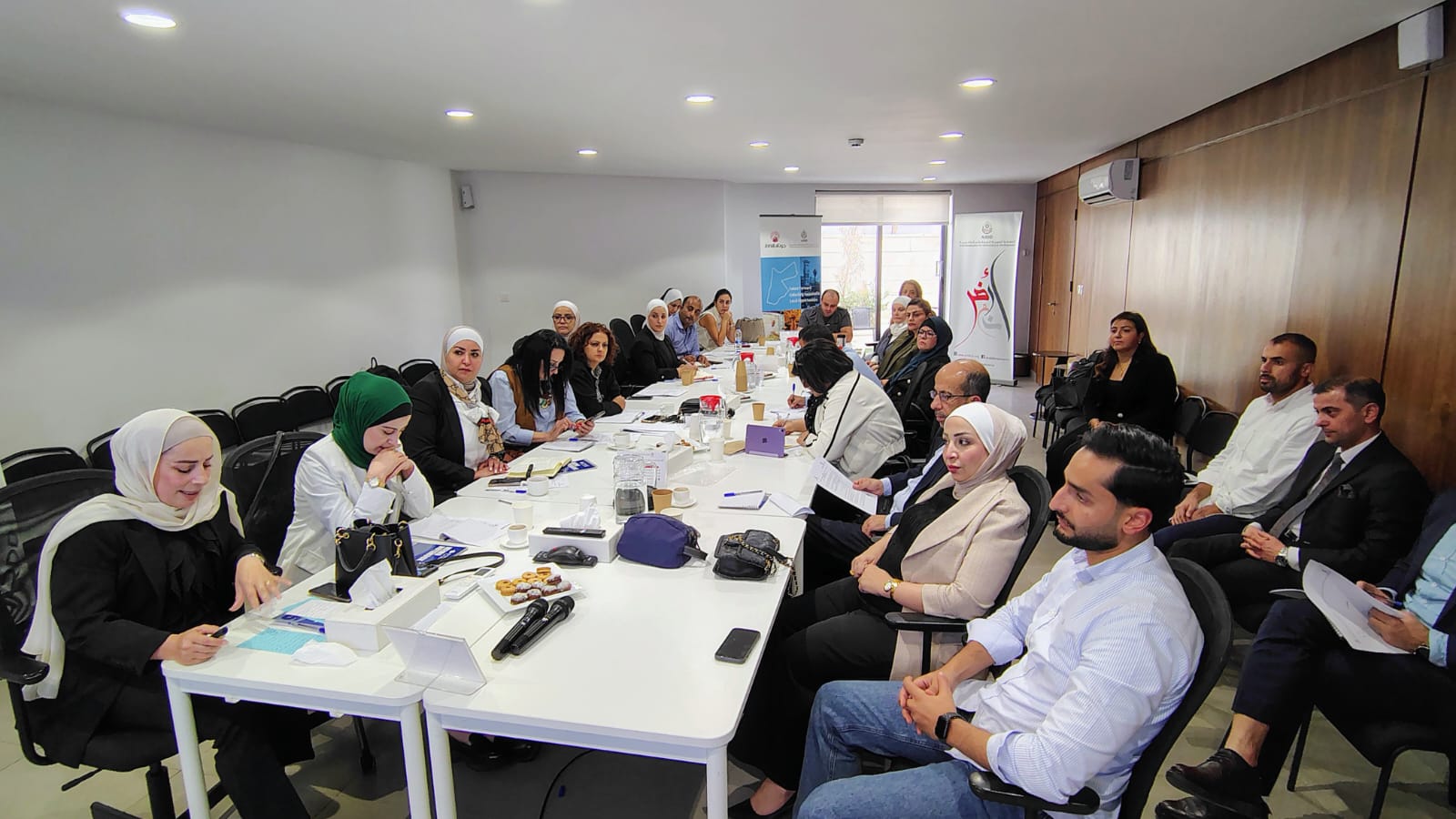While small and medium enterprises (SMEs) represent the backbone of both national and global economies, entrepreneurial projects play a central role in driving economic growth and sustainable development. They also contribute to combating poverty and unemployment, creating job opportunities for women, youth, and low-skilled individuals, in addition to boosting GDP and supporting exports.
In Jordan, SMEs make up about 98% of all companies, reflecting their importance within the national economic structure and their pivotal role in economic empowerment, as they contribute nearly 50% to Jordan’s GDP and provide around 60% of job opportunities.
In this context, the Arab Renaissance for Democracy and Development (ARDD), in cooperation with the Jordan National NGO Forum (JONAF), held on Monday, October 10, 2025, a workshop titled “From Local Prospects to National Policies: Unifying Findings on the Challenges and Solutions of Licensing Small and Medium Enterprises,” as part of the project “Future Forward: Unlocking Sustainable Local Opportunities.”
This workshop builds on a series of regional dialogue sessions previously held by ARDD and JONAF in Irbid and Aqaba, aiming to develop a comprehensive national vision grounded in local community experiences in the fields of entrepreneurship and small business. The workshop sought to examine the legal, administrative, and financial challenges facing SMEs at the national level and to agree on unified policy recommendations that would contribute to formulating a set of immediate and long-term policy actions concerning the licensing of these enterprises. It also aimed to influence national and local policies by highlighting successful local models that can serve as foundations for sustainable development.
Lina Halsa, Project Manager of “Future Forward” at ARDD, emphasized that the workshop comes as part of ongoing efforts to enhance the local business environment and empower small, medium, and micro-entrepreneurs, as they are the main drivers of economic and social development in Jordan. These efforts align with the Economic Modernization Vision 2030, which seeks to empower the private sector and promote inclusive growth by supporting entrepreneurship and SMEs as key pillars of the national economy.
The workshop’s goals are consistent with the vision’s pillars, particularly in the areas of investment, entrepreneurship, and the empowerment of women and youth. It seeks to translate local challenges into actionable and practical recommendations that contribute to developing a more inclusive and sustainable business environment. In doing so, the workshop serves as a practical example of the “bottom-up” approach that links community-level experiences to national economic policies, thereby amplifying the impact of empowerment and sustainable development programs in Jordan.
Discussions during the workshop focused on key areas such as raising legal awareness and building the capacities of entrepreneurs, harmonizing definitions and classifications of business types across government entities and support institutions, coordinating efforts among ministries and civil society organizations, and strengthening partnerships with the private sector within the framework of corporate social responsibility to support entrepreneurial, small, and medium projects.
The roundtable discussion, moderated by Rami Quwider, Legal Advisor at ARDD, brought together representatives from government bodies, civil society organizations, and JONAF members from various governorates to exchange experiences and discuss the on-the-ground challenges faced by entrepreneurs in the licensing process. Participants from JONAF working groups in the northern and southern regions presented some of the most pressing issues facing small, medium, and micro-enterprises. Among the main concerns raised were the need for continuous updates to legislation governing business licenses and related regulations to better reflect the nature of small businesses, digital services, and social initiatives. Participants also noted that the current system limits flexibility and growth potential due to the complexity of procedures, the multiplicity of entities involved in licensing, and the absence of a “one-stop-shop” in most governorates, which hinders efficiency and ease of obtaining licenses. They further highlighted the high cost of licensing relative to the limited income of small or home-based businesses, the inconsistency of fees across governorates, and the lack of fair pricing for community-based projects. Another challenge identified was the low level of legal and procedural awareness among entrepreneurs and the absence of sustainable awareness programs that explain the legal and economic benefits of licensing.
In her remarks, former MP Mayyada Shreim noted that this workshop was “one of the most organized and insightful discussions I have attended,” affirming her support for advancing the recommendations to policymakers—especially within the legislative, entrepreneurship, and economic committees—to ensure their adoption and implementation.
Participants emphasized the importance of developing an integrated national system to facilitate licensing and ensure the sustainability of SMEs, viewing them as key drivers of economic growth and youth and women’s entrepreneurship. They called for enhanced coordination between JONAF and relevant authorities to strengthen the legislative framework for entrepreneurs. They also stressed the need to simplify procedures through a unified electronic platform and to enhance public–private partnerships to finance projects within corporate social responsibility programs.
The workshop concluded with recommendations for introducing tax incentives and exemptions for new projects, establishing financing and mentorship programs for emerging entrepreneurs, and designing development initiatives tailored to local community needs to ensure long-term sustainability.



